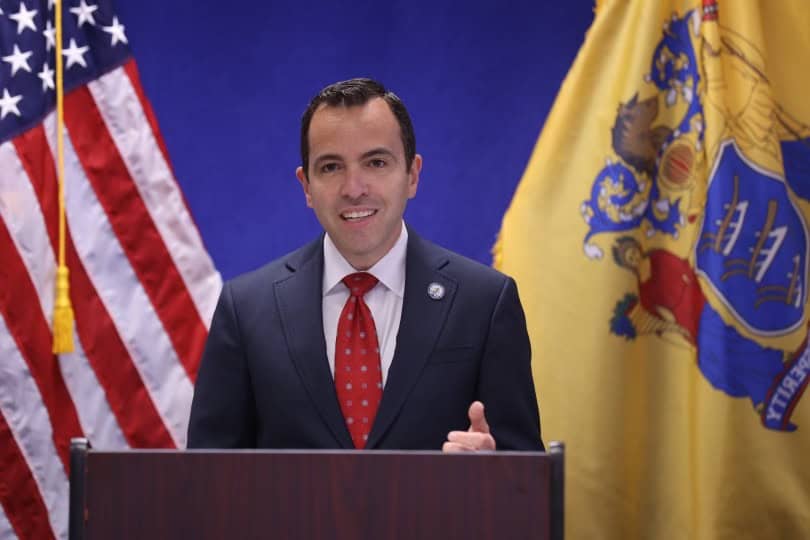

The New Jersey Division of Criminal Justice (DCJ) is in the fight against human trafficking depicted in a new film.
The issue of trafficking has drawn attention via a film now in theaters, “Sound of Freedom.” But New Jersey was already ahead of the curve in fighting the crime.
It has regularly investigated and prosecuted the crime, and in January, state Attorney General Matthew J. Platkin formed a dedicated human trafficking unit that enhances the work of the DCJ.
The unit consists of experienced deputy attorneys general and detectives who operate throughout the state to investigate trafficking networks, according to a statement from the state attorney general in response to a query from The Sun.
The unit also aids federal, county and municipal investigations that impact multiple counties or areas where the DCJ’s statewide footprint can assist, and it has an education and community outreach component.
While the mandate of the unit is to identify and dismantle human-trafficking networks operating in New Jersey, the DCJ has a broader mission to educate, collaborate, prosecute, and prevent human trafficking,” the statement read.
Toward this broader goal, the division has significant involvement in the New Jersey Human Trafficking Task Force, New Jersey Commission on Human Trafficking and the Human Trafficking Law Enforcement Liaison Group.
Since 2018, about a dozen human trafficking cases have been handled by county prosecutors’ offices and another 12 have been prosecuted by the DCJ. In 2022, the state’s human trafficking hotline received 113 tips; so far this year, there are 91.
The task force is composed of representatives from law enforcement, victim services organizations, state regulatory departments and social-service providers. It is a cross-disciplinary group that helps share non-confidential information between representatives, ensuring a wide net is cast to identify trafficking victims and intervene in crimes.
“The task force informs many different organizations that may encounter human trafficking, which creates more opportunities to intervene in these crimes in New Jersey than simply the incidents that law enforcement encounters,” the attorney general said in a statement.
“This approach is critical, because the reality of human trafficking is that it is often very difficult to track and identify,” the statement added. “Understanding these complexities will improve our ability to combat it.”
The statement also highlighted the importance of the Commission on Human Trafficking in trafficking interdiction. Its responsibilities include evaluating the existing law concerning human trafficking and its enforcement to make recommendations for legislation and reviewing existing victim-assistance programs.
The commission voted in June to support two pieces of pending legislation. The first is a bill that permits victims and witnesses of human trafficking to testify in criminal proceedings via closed-circuit television and permits a judge to make a motion for such testimony. The second bill eliminates the statute of limitations for the prosecution of trafficking crimes.
Another key factor in the measures is the coordination between local, county, state and national law enforcement. Each county prosecutor, the state police, the U.S. Department of Homeland Security and the FBI have liaisons who notify the DCJ of new trafficking cases to assess trends locally and share intelligence, according to the attorney general’s office.
There has been more awareness about the global scale of trafficking since the July 4 release of the movie “Sound of Freedom.” But New Jersey was already ahead of the curve in fighting the crime.
If you need help or know someone who does, call Covenant House at (862) 240-2453, the New Jersey Human Trafficking Hotline at (855) 363-6548, and/or the National Human Trafficking Hotline at (888) 373-7888 or by text to 23373.









